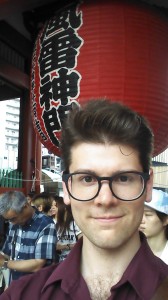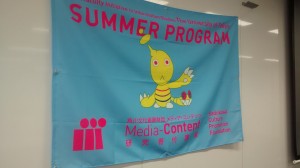The GRAND Digital Humanities project welcomes Shuji Watanabe. He is an Associate Professor of Image Arts and Science visiting the University of Alberta from Ritsumeikan University, Kyoto, Japan. He is in Edmonton on sabbatical for 7 months with his family.
His research is around prototyping user generated content games. At the University of Alberta he is collaborating with GRAND researchers Geoffrey Rockwell and Jérémie Pelletier-Gagnon.
Professor Watanabe’s experience includes the planning and overseeing of various games such as Magic Pengel(/Garakuta Meisaku Gekijo Rakugaki Okoku)/, which was recommended by the Examination Committee at the 15th Media Arts Festival Media Art Interactive Division, and Minna no shiro, which won the Grand Prize at the First Annual Game Koshien Awards. He is an advocate of “ecological-sketch”, which visualizes rules and is a game design technique that begins from observations of the world as opposed
to imitating the works of others. He conducts research and development in not only traditional game development, but also in applicable fields such as education and crisis management appropriate for “gamification”. He is a member of the Research Committee, Japan Digital Game Association
and Steering Committee, Ritsumeikan Center of Game Studies.



